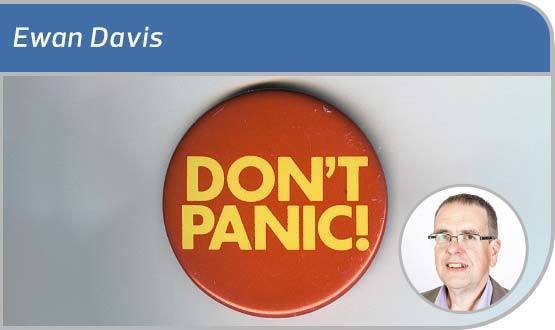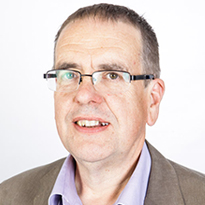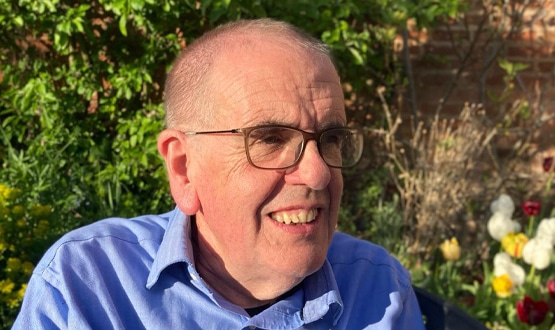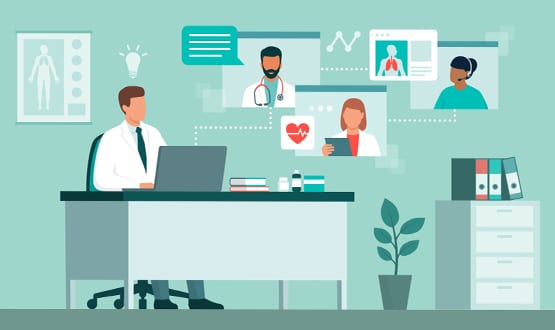Ewan Davis: open for debate
- 13 April 2016

I am delighted to have been asked by Digitalhealth.net to contribute a regular column and I have promised faithfully to stick to my submission deadlines.
However, when it comes to deadlines I'm afraid I feel a bit like Douglas Adams: “I love deadlines. I like the whooshing sound they make as they fly by.”
This is something that I suspect I share with many of the brave souls responsible for NHS IT, as I've lost count of the number of deadlines I've heard whooshing by me over my first 35 years in this business.
However, it's not my intention to use the column to look back. Instead, I want to look forward informed by my experience but not, I hope, ossified by it.
I give only one piece of advice that those who are new to this world must take: and that's to ignore 80% of my advice. Having issued that warning, I want to develop some themes over coming months and I'll outline them here.
We need to open up
The first is about the need (actually, the imperative) to create an open digital ecosystem – or platform – for health and care. I first worked on platform-based approaches at the end of the last century; initially for people who wanted to own the platform and then with people who wanted to create an open platform.
Everything I've done since (with the app developer community with HANDI, with the NHS England Open Source and Code4Health programmes, and during my time on the techUK Health and Social Care Council) convinces me that what we create has to be a truly open ecosystem owned by nobody – just like the internet.
An open ecosystem is not a mega-suite with some open APIs. It is much more than this; and I see the attempts by some players to own the platform as analogous to the early attempts by the likes of Microsoft, AoL and CompuServe to own the internet.
I hope that, like these companies, they will learn that greater commercial opportunities lie in exploiting an open platform than in trying to own a closed one.
If we can create an open digital ecosystem then the health and economic benefits will be massive; and if you don't believe me then look at what McKinsey has to say on the subject.
They reckon that health systems creating an open ecosystem will save more than 11% of total healthcare costs. In future articles, I will try and describe what an open ecosystem is and how we might build one.
We know how to do this
My second theme is an assertion that we know how to transform health and social care to meet the challenges we face and that we know how to use digital technology to help us do it.
The problem is that we don't always realise what we know. The “we” here is UK health and social care community – commissioners, providers, vendors, informaticians academics and citizens.
Sometimes, we know we know how to address a particular challenge, because someone has done it; but somehow we fail to adopt the solution elsewhere. More typically, individuals in the community have a piece of the puzzle but don't understand its significance or where it fits.
Some have called this hidden knowledge ‘distributed cognition’ https://en.wikipedia.org/wiki/Distributed_cognition and argued that technology – particularly social networks – can enable us to harness it. This is something I already see happening in networks like the CCIO and Health CIO networks, but we can do more.
In future pieces , I'll explore how we can speed up the adoption of those things we know work and how we can apply the theoretical work on distributed cognition to surface the answers to problems we didn’t realise we had.
We need new leaders
My third theme is about leadership, and it ties in strongly with my second theme. We don't need white knights or rock stars, who think they have the magic bullet and know the answers.
We have a long enough history of bringing in great people with great expectations, who think they have the easy answers to complex problems. They don't and they eventually fail and move on.
We need a new breed of leader who knows that they don't have most of the answers but understands that the community has – and who is able to support the community to surface and implement its solution.
This requires a profound knowledge of UK health and care, so leaders are able to critically appraise the advice and evidence presented to them and understand where it fits in the UK context. Such people will not be found outside health and care or the UK.
We have much to learn from experts from other sectors and other places; but these are not the people we need to lead the transformation.
Finding the right people is going to be a challenge and I’m reminded again of the wisdom of Douglas Adams: “To summarise the summary: anyone who is capable of getting themselves made President should on no account be allowed to do the job.” In future pieces I'll try and describe how we might break the double bind and get the leaders we need.
|
Ewan Davis
|






